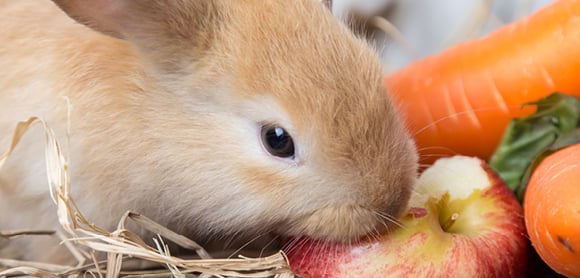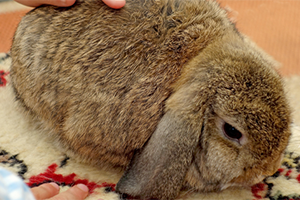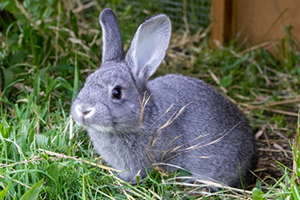We might sometimes overindulge at Christmas, but it’s best to keep your rabbits' meals the same as normal. That’s because too much rich food – or a sudden change in diet – can upset their delicate digestive systems.
Healthy food for a rabbit should include:
- 85% unlimited hay and grass
- 10% vegetables and herbs
- 5% pelleted feed
It’s OK to feed your bunnies treats over the festive season, but remember these should only make up 5% of their daily calorie intake. Here are three homemade ideas to get you started.







